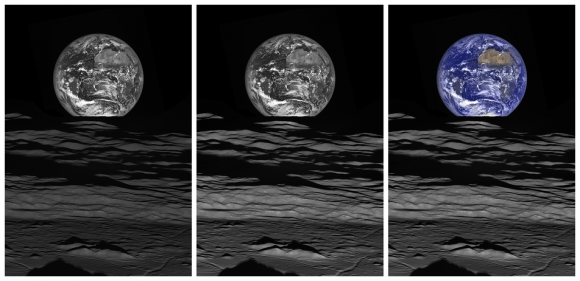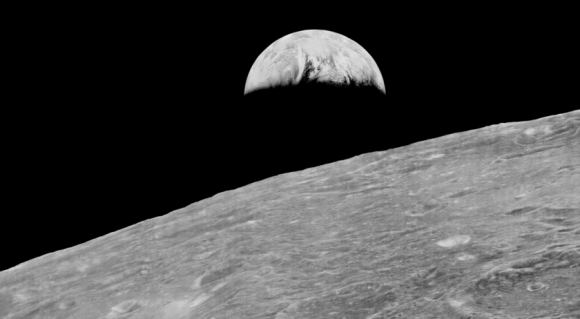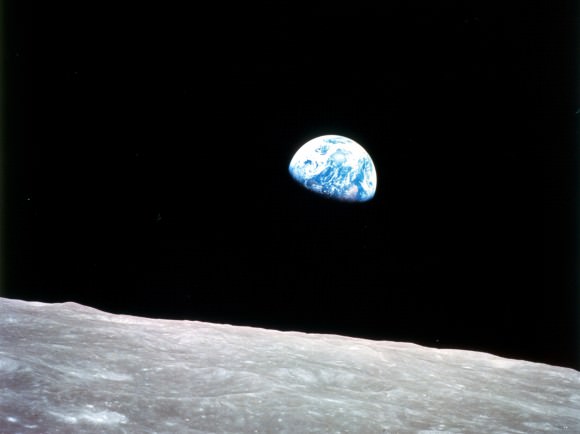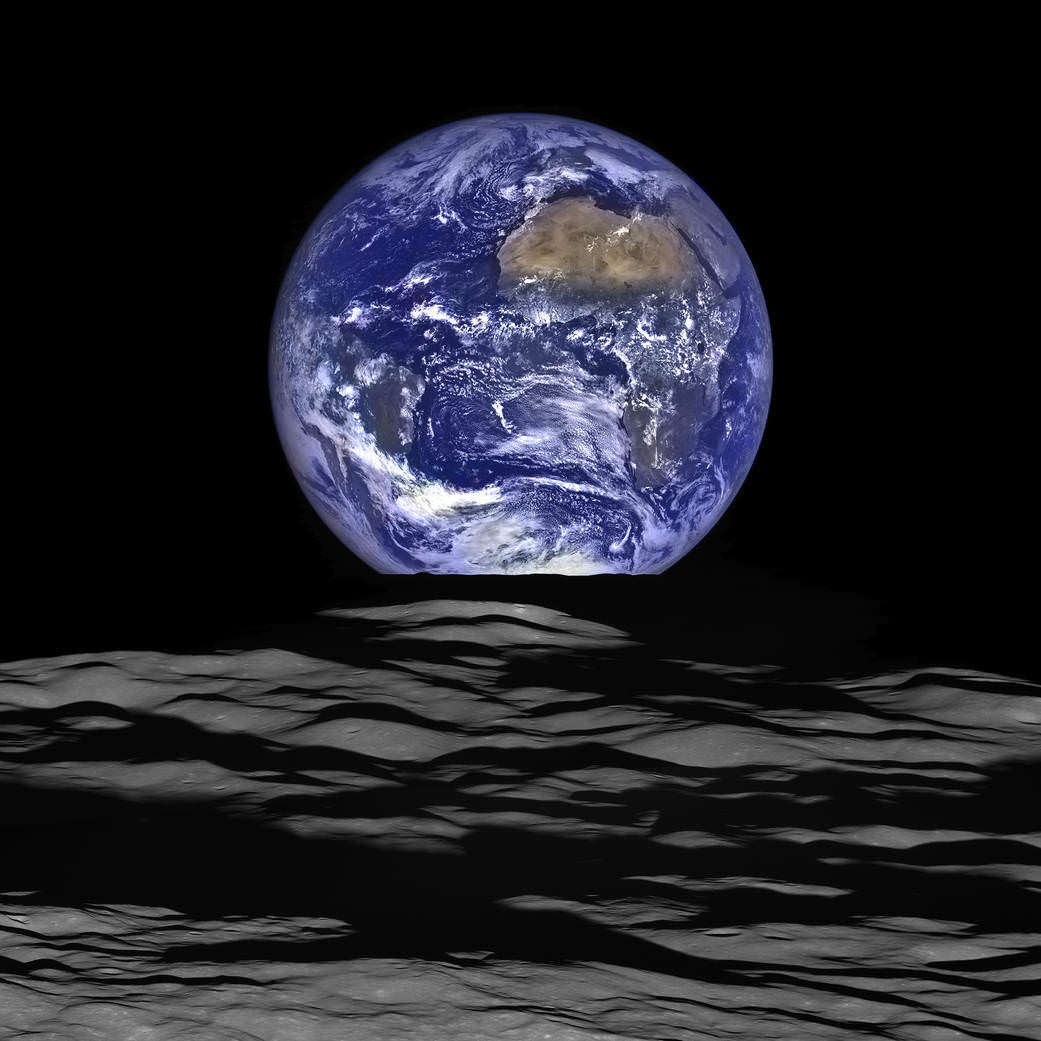Nearly 47 years ago, the crew of Apollo 8 took an image of planet Earth from the Moon that has been called “the most influential environmental photograph ever taken.” Called Earthrise, the picture represented the first time human eyes saw their homeworld come into view around another planetary body.
Now, the Lunar Reconnaissance Orbiter (LRO) has captured stunning new high-definition views of Earth and the Moon from the spacecraft’s vantage point in lunar orbit.
This is a composite view, with Earth appearing to rise over the horizon of the lunar farside. The image is composed from a series of pictures taken on Oct. 12, 2015 when LRO was about 83 miles (134 kilometers) above the moon’s farside Compton crater.
Taking this image was actually a complicated task for the LRO team. Mark Robinson, the principal investigator for LROC camera explained:
First the spacecraft must be rolled to the side (in this case 67°), then the spacecraft slews with the direction of travel to maximize the width of the lunar horizon in the NAC (Narrow Angle Camera) image. All this takes place while LRO is traveling over 1,600 meters per second (faster than 3,580 mph) relative to the lunar surface below the spacecraft! As a result of these three motions and the fact that the Narrow Angle Camera is a line scanner the raw image geometry is distorted. Also, because the Moon and Earth are so far apart, the geometric correction is different for each body. Reconstruction of the Earth-Moon image is not a simple matter – and that is just to get the black and white image!
Planning the Maneuver
Here’s a video created by the LRO Mission Operations Center showing how they planned the maneuver with a specialized spacecraft slew planning software. The vertical red line indicates the NAC line scan:
In the image, the center of the Earth just off the coast of Liberia (at 4.04 degrees North, 12.44 degrees West). The large tan area in the upper right is the Sahara Desert, and just beyond is Saudi Arabia. The Atlantic and Pacific coasts of South America are visible to the left.

The Narrow Angle Camera (NAC) on LRO takes high resolution black-and-white images, while the lower resolution Wide Angle Camera (WAC) takes color images, so the two camera images are combined (with some special processing) to create the one high-rez image.
Robinson also explained how being in orbit provides a different view from what the Apollo astronauts saw (and hopefully what future lunar explorers will see) from the lunar surface.
“From the Earth, the daily moonrise and moonset are always inspiring moments,” Robinson said. “However, lunar astronauts will see something very different: viewed from the lunar surface, the Earth never rises or sets. Since the moon is tidally locked, Earth is always in the same spot above the horizon, varying only a small amount with the slight wobble of the moon. The Earth may not move across the ‘sky’, but the view is not static. Future astronauts will see the continents rotate in and out of view and the ever-changing pattern of clouds will always catch one’s eye, at least on the nearside. The Earth is never visible from the farside; imagine a sky with no Earth or moon – what will farside explorers think with no Earth overhead?”
“The image is simply stunning,” said Noah Petro, Deputy Project Scientist for LRO. “The image of the Earth evokes the famous ‘Blue Marble’ image taken by Astronaut Harrison Schmitt during Apollo 17, 43 years ago, which also showed Africa prominently in the picture.”
First Earthrise
NASA’s first Earthrise image was taken with the Lunar Orbiter 1 spacecraft in 1966. Below is a restored version of the image from the Lunar Orbiter Image Recovery Project. You can the original image and more info about that project here.

In 1968, the Apollo 8 crew of Frank Borman, Jim Lovell, and Bill Anders conducted a live broadcast from lunar orbit, in which they showed pictures of the Earth and Moon as seen from their spacecraft. Lovell perhaps said it best: “The vast loneliness is awe-inspiring and it makes you realize just what you have back there on Earth.”
Here is one of the images from Apollo 8:

For more information on how the LROC team created the image, see the LROC website.


WoW! Great Job. I have a specail page for such photos and added this immediatly (of course with a link tot his article). Seeing Earth from space gives us a whole new perspective and the iconic Earthrise from Apollo 8, (albeit not the first) is a world heritage photo.
http://www.thevenustransit.com/2012/02/earth-from-space.html
Gadi
How fitting that the computer technology spawned by the Apollo missions can now be used to provide us with a recreation of the astronauts’ magical experience. I look forward to a VR version, fleshed out with the CM cockpit interior.